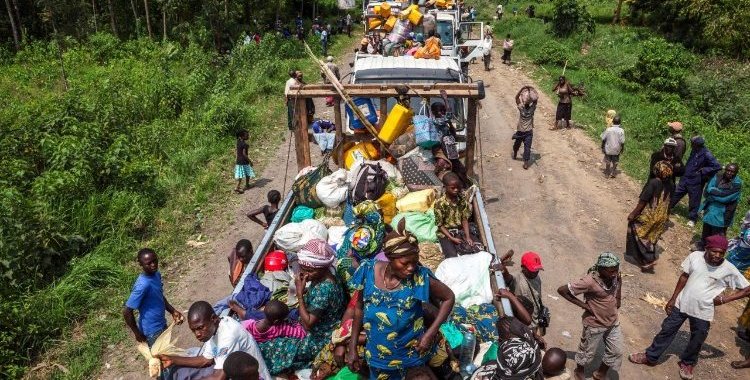Angola and DR Congo share a vast land, sea and river border, as analysts Tiago Armando and David Sambongo pointed out, also warning of implications from a health point of view with the possible mobility of Congolese citizens.
"Every war has consequences and one of them is the mobility of people, the displaced and at the same time the refugees, and as we share this extensive border, the probability that we have to deal with the flow of refugees from the DR Congo is greater", analyst Tiago Armando told Lusa this Friday.
According to this international relations expert, with the worsening of tensions in eastern DR Congo, Angola may be forced to comply with international law and welcome potential refugees.
"We will have to welcome them and, in a certain way, it would also require costs to create conditions for reception, accommodation and assistance," he stressed.
For Tiago Armando, from a social point of view, there may still be consequences in the health chapter for Angola, which is currently facing a cholera outbreak, given the various epidemics that are also ravaging the DR Congo.
"So, from the point of view of public policies or health measures, it would be necessary to redouble efforts on Angola's part," he said.
The analyst also highlighted the efforts of the government, especially President João Lourenço, appointed by the African Union as mediator in the conflict between the DR Congo and Rwanda – alleged financier and supporter of the rebel group M23, stressing that Angola defends "peaceful solutions".
Political scientist David Sambongo recalled the extensive border that Angola shares with the DR Congo, saying that this must be an escape for thousands of Congolese citizens as conflicts in that region worsen.
"And whenever there is armed conflict or instability in the DR Congo, the tendency is for Congolese citizens to come to our [Angolan] territory to seek refuge or even invade from the point of view of forced emigration due to this conflict," he told Lusa.
Sambongo considered, on the other hand, that the possible presence of Congolese refugees in Angola could also economically burden the country, which is proving "incapable" of responding to the needs of national citizens.
Stressing that the conditions of Angolan families are "increasingly deteriorating", the analyst warned that the "conflict in the east of the DR Congo could trigger a very strong wave of emigration to Angola that could economically overload the (...) country", he concluded.
The East African Community (EAC) and the Southern African Development Community (SADC) have called a joint meeting on Saturday to address the prevailing conflict in eastern DR Congo.
The high-level meeting will take place amid heightened tensions between Kinshasa and Kigali, after the M23 armed group and its allies in Rwandan forces took Goma, the main city in eastern DR Congo, and continued to advance in the region.
The summit, which will take place in Dar es Salaam, Tanzania, and is organized by the EAC and SADC, will bring together several heads of state and government, and above all, the presidents of the two countries involved in the conflict: Félix Tshisekedi (DRCongo) and Paul Kagame (Rwanda).
The conflict, which has been dragging on for more than three years despite numerous diplomatic interventions, has seen a new and more violent offensive since the end of January and has reached the province of South Kivu, which is now in the sights of M23 and Rwandan soldiers.







